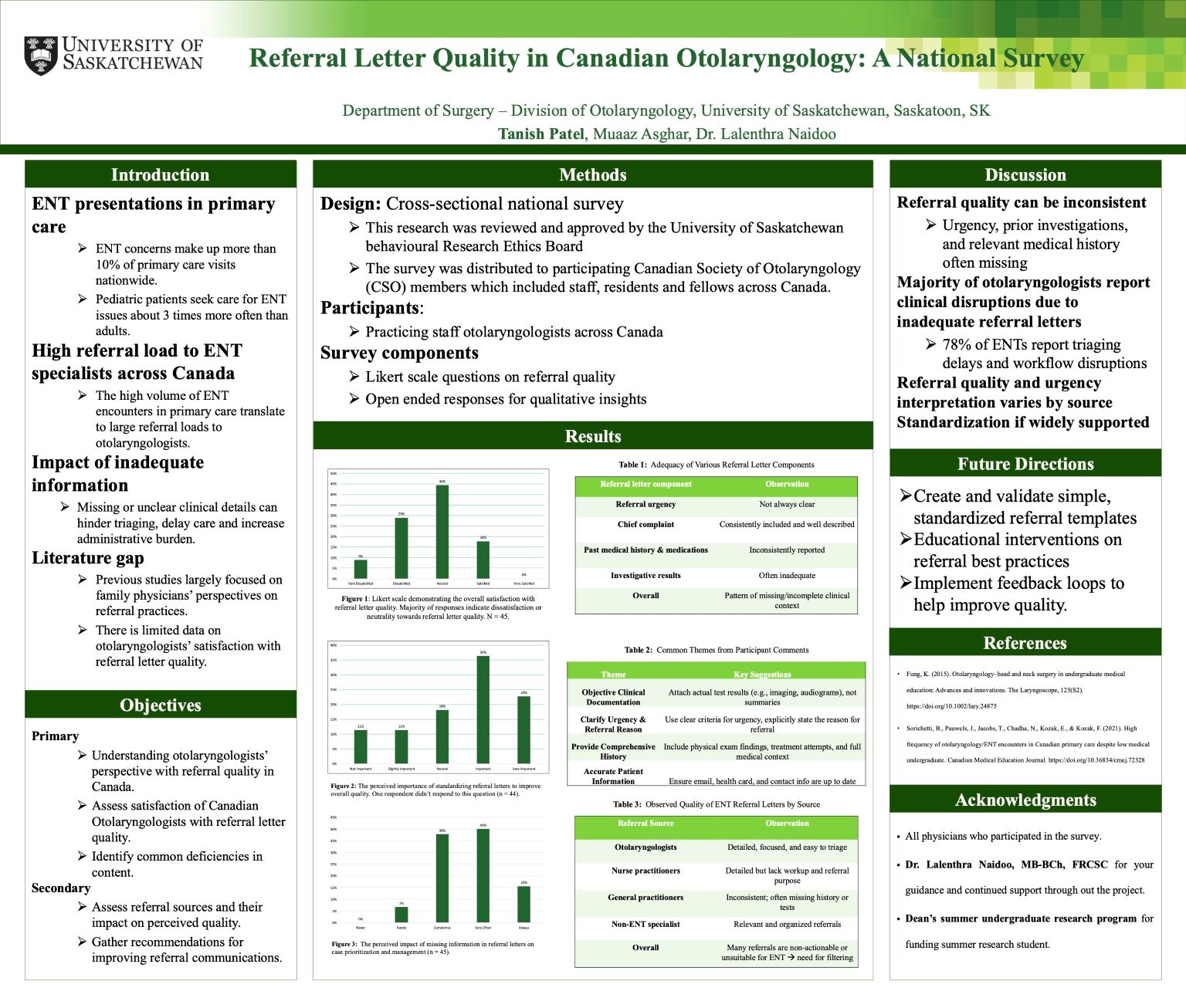
Referral Letter Quality in Canadian Otolaryngology: A National Survey
Tanish Patel
Objective: Accurate triaging and patient prioritization rely on “good” referral letters. However, quality varies widely across practice settings and providers. Despite high referral volumes, little is known about Canadian otolaryngologists’ satisfaction with the referral letters they receive. This study evaluated their satisfaction, regional and subspecialty differences, and opportunities for improvement.
Methods: This survey was reviewed and approved by the University of Saskatchewan Behavioural Research Ethics Board (BEH#5300).
The national survey was developed on REDCap and distributed to all active members of The Canadian Society of Otolaryngology (CSO); responses were filtered for staff physicians. Likert scales and open-ended questions were used to quantify overall satisfaction and identify common themes. Responses were analyzed using descriptive statistics and thematic analysis for identification of common themes.
Results: 78% of respondents reported triaging delays or workflow disruptions due to incomplete referrals. Clinical contextual details such as urgency, prior investigations, and relevant comorbidities were frequently absent. Urgency interpretation differed by referral source. 59% of participants supported standardization.
Conclusion: Inconsistent referral content creates significant inefficiencies for Canadian otolaryngologists. Strong support for standardization suggests that implementing templates could reduce delays, harmonize urgency interpretation, and streamline patient prioritization to improve efficiency and clinical outcomes along the care pathway.
